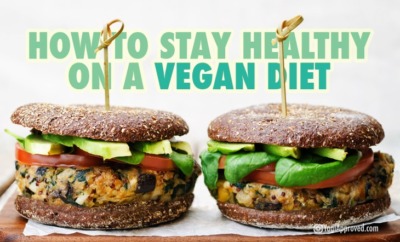Dietary Considerations in the Age of GMOs and Nuclear Accidents

eatting
Following our education about the conditions of the industrial meat processing centers, many of our concepts concerning which meats are acceptable to consume have been put to question. If you care at all about your health and or how the animals you are consuming have been treated your left to follow one of three guidelines when purchasing meat:
1. No fast food
We cut fast food based on the premise that GMO Soy filler and bottom of the barrel meat is not good for our bodies. The best form of support for this position is realistic economic evaluation – specifically: “How can an entire chain of processing make money on my hamburger if I am buying it for 99 cents, and if they can, then what exactly am I buying?”
2. Look for the labels
Next, we decline animal products based on the conditions of how the animal was raised – here is where we encounter labels like certified organic, free range, kosher or humanely raised. Concerns over the presence of stress-induced hormones and cortisoid production in industrial slaughterhouses. There is also concern over GMO corn fed cattle, which are injected with antibiotics to combat inflammation and diseases spread by slaughterhouse conditions.
3. Go local with your meat
We only consume locally farm raised and slaughtered meat, wherein a person will only eat meat that is slaughtered by either themselves or their neighbors.
Here are some some things to consider:
Following Fukushima, we are becoming increasingly aware of the long term effects of radioactivity on our food supply. Evidence that the eco-systemic health of the Pacific Ocean has been compromised is widely available, which affects the diets of pescatarians in Japan, Canada, the United States, China, Mexico, South America, and Islands in the North and South Pacific. Pescatarians are people who decline to eat other forms of meat, but accept that fish eating is a useful dietary practice.
Fish is considered a lean meat, and is often full of Omega-3 Fatty Acids, which have been linked to critical brain functioning. For those of you who are looking for alternative sources for Omega-3’s, you might consider flax, chia, walnuts, rye, snap peas and spinach.
Airborn fallout radiation has spread across the United States, and has deposited radioactive isotopes within land-based ecosystems. As radiation becomes more concentrated in creatures that eat higher on the food chain, meat and poultry across the US must be held in suspicion, as well as the eggs and dairy products that are produced by these animals. Lacto-ovo vegetarians must also be mindful of the geographical sources for the dairy that they eat, because strontium-90, which is called “Bone Seeker”, is a radioactive isotope that impersonates calcium when it is consumed.
Lacto-Ovo vegetarianism is a dietary practice that focuses on eating vegetables, but makes exceptions for eggs and dairy products. Some of the strongest arguments for eating these dairy products are the complete proteins present in animal products, the probiotics present in yogurt, the fats that are available in dairy products, and the B vitamins that are always associated with consumption of animal products.
Some accessible substitutes for complete proteins would be combinations of nuts and grains, or legumes and grains, such as beans and rice, or walnuts and whole wheat. The probiotics can be found in fermented vegetables and beverages such as kim chi, pickles, and homebrewed fermented teas, sodas and alcohol. Monounsaturated fats can be found in avocados, nuts and olives, and B vitamins can be found in nutritional yeast, or in liquid form at supplement stores.
Beyond Fukushima, there are many domestic US nuclear contamination sites, including Three Mile Island in Pennsylvania, Hanford, Washington, and Carlsbad, New Mexico; these sites have already incurred accidents that continually affect the surrounding environment, and there are many other locations of nuclear reactors, test sites, missile silos, and storage facilities throughout the United States.
Knowledge is the first component of a responsible decision-making process.
If you, or someone you know, are going to continue to eat animal products, or animal by-products, the best option is to raise them yourself. If you are fortunate enough to have property, and you eat meat products, then you may be interested in raising chickens or ducks; fish or rabbits; you may even consider raising a goat for the purposes of creating milk, yogurt and cheese.
If you have done research and you are considering this route, you may want to send samples of you food to be tested for radiation. Seattle fishmongers are testing their fish, and have found them to be well below FDA standards for safe radiation levels, however, in response to Fukushima, the FDA increased the acceptable minimal level of radiation present in food – so use your own discretion.
If you do not have your own property, and insist on eating meat products, then it may be a good idea to purchase your food from local farmers markets, where you can discuss your concerns with the person who raised the animals, knows what they ate, where they are from, and how they were slaughtered. It may also be a good idea to determine whether or not you live near a site that has increased levels of radioactive contamination – The EPA has a site called “Radnet” that can help you make those determinations.


This Month's Letter
From the Editor
Monthly motivation and food for
thought from our founder.



























